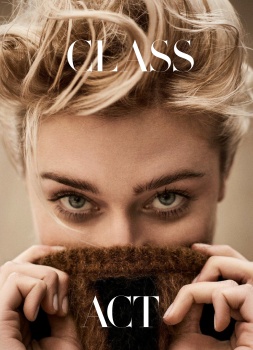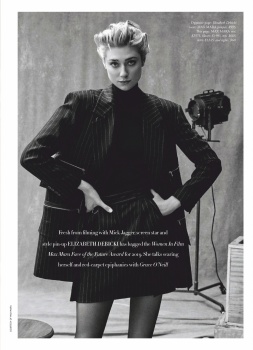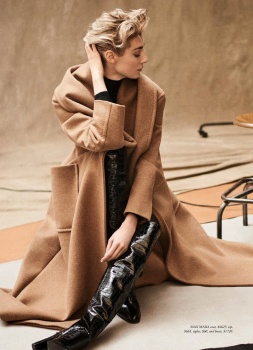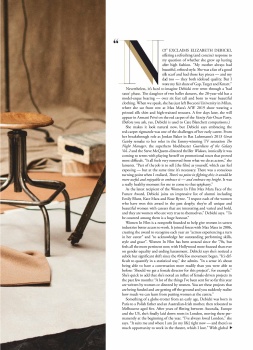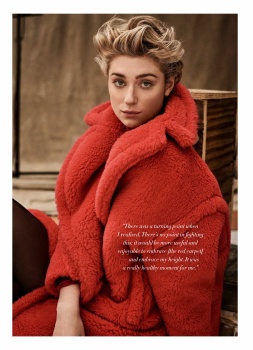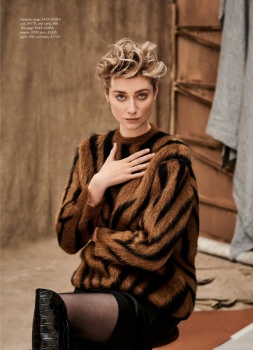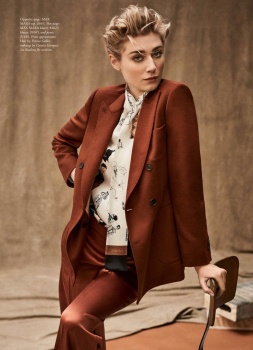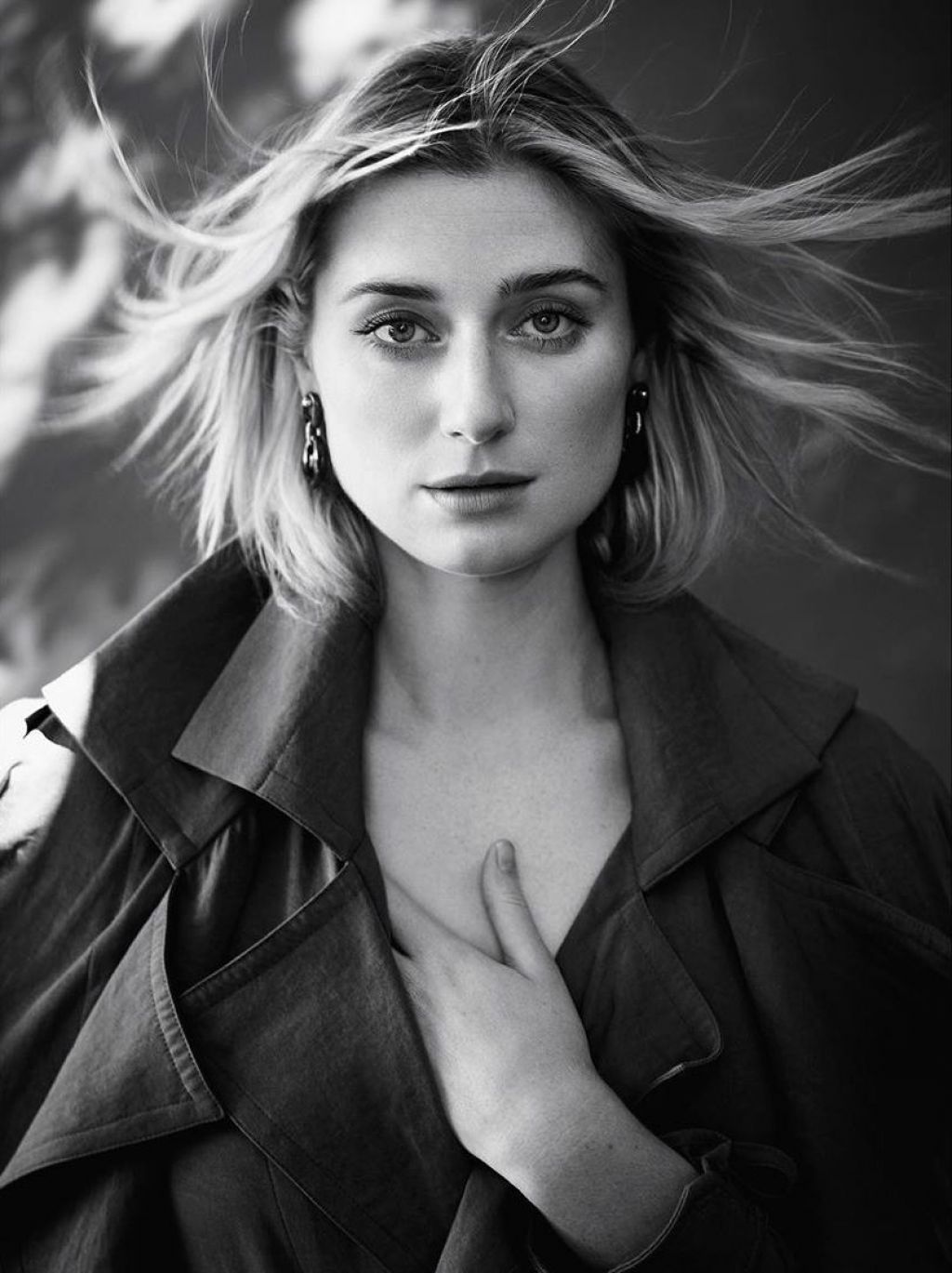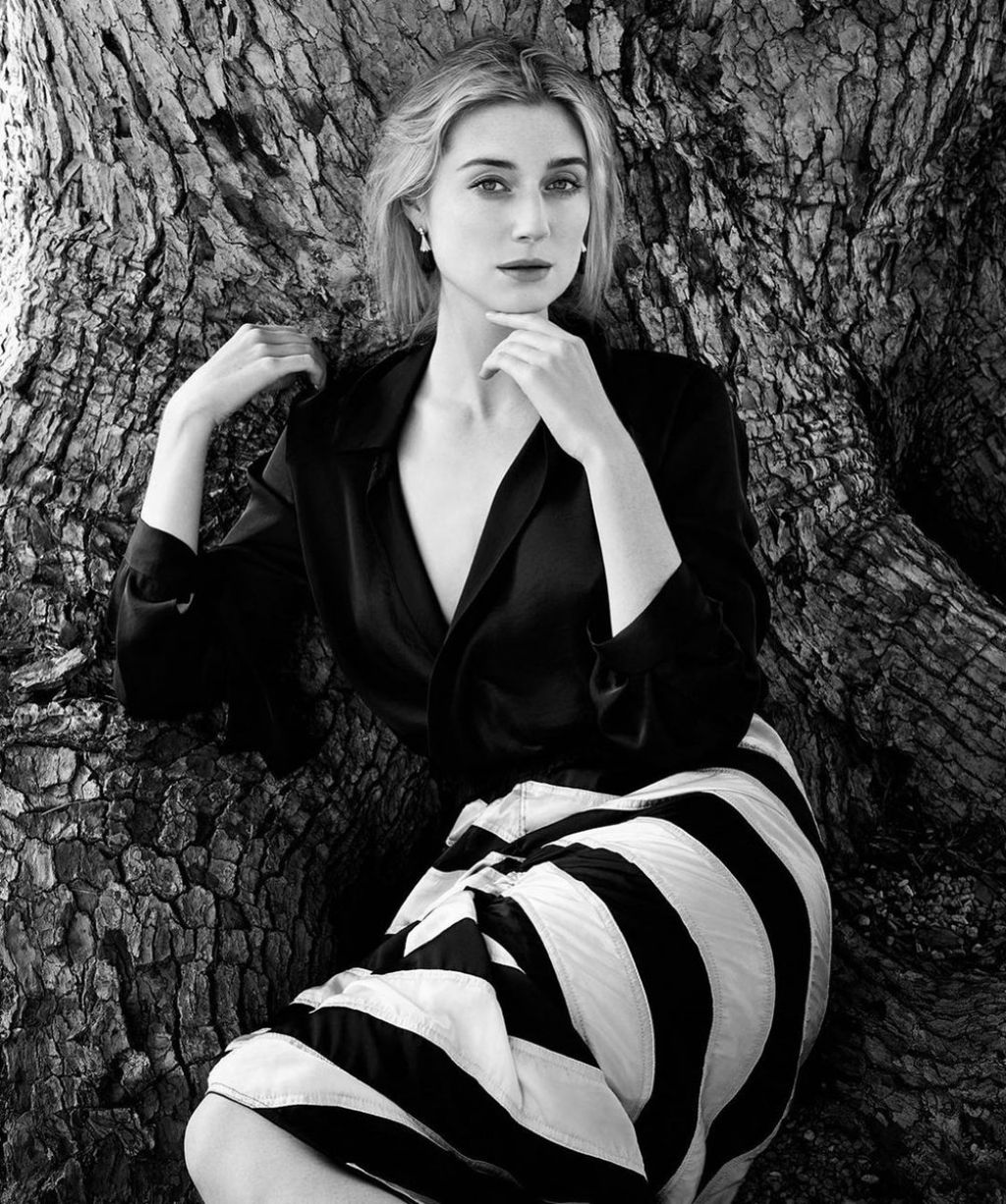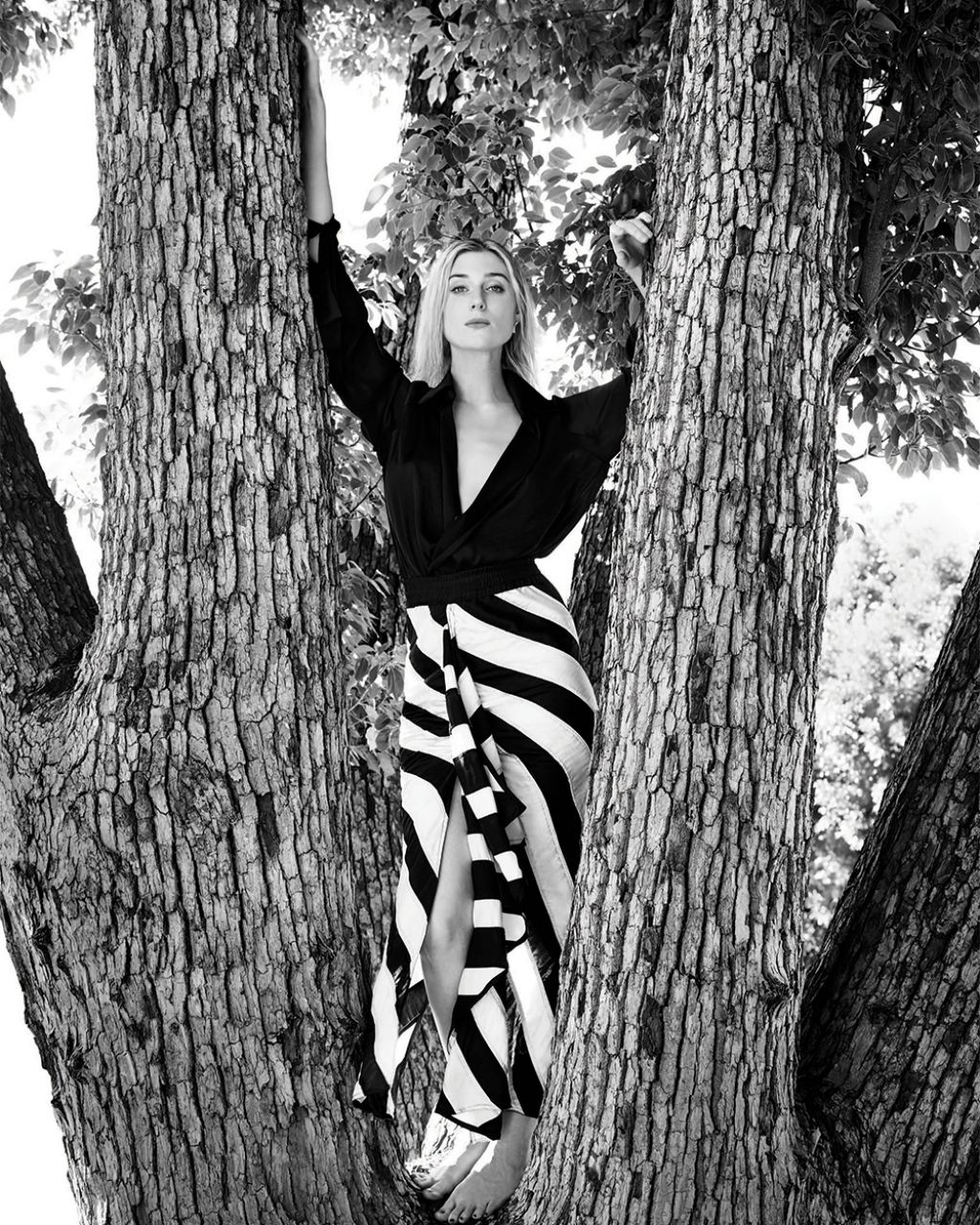You are using an out of date browser. It may not display this or other websites correctly.
You should upgrade or use an alternative browser.
You should upgrade or use an alternative browser.
Elizabeth Debicki
- Thread starter FashionDream
- Start date
kissmesweet
Well-Known Member
- Joined
- Dec 26, 2005
- Messages
- 19,675
- Reaction score
- 338
The loose-fitting suit is a very interest choice for her. It works, because of her tall frame.
Yohji
Well-Known Member
- Joined
- Mar 12, 2015
- Messages
- 11,344
- Reaction score
- 3,429




hawtcelebs.com
Elizabeth DEBICKI
Hometown: Melbourne, Australia
Films: 14
Prestige TV Breakthrough: The impeccably dressed femme fatale in the BBC’s 2016 adaptation of John le Carré’s The Night Manager
Most Recently Seen: Holding her own amid a sea of heavyweight co-stars in Steve McQueen’s Widows, as a long-suffering wife looking for an escape
“The change I’m seeing more and more is women directors, producers, and writers. Not necessarily stories that have never been told before, but they’re finally being told from a female perspective.”
kissmesweet
Well-Known Member
- Joined
- Dec 26, 2005
- Messages
- 19,675
- Reaction score
- 338
This is a miss - a rare one, at that - for me!
kissmesweet
Well-Known Member
- Joined
- Dec 26, 2005
- Messages
- 19,675
- Reaction score
- 338
I really love that look at the VF Oscars party. 

jexxica
Well-Known Member
- Joined
- Mar 14, 2009
- Messages
- 31,710
- Reaction score
- 371
Elizabeth Debicki attends the InStyle Max Mara Women In Film Celebration at Chateau Marmont on June 11, 2019 in Los Angeles, California.


Elizabeth Debicki, wearing Max Mara, attends the 2019 Women In Film Annual Gala Presented by Max Mara with additional support from partners Delta Air Lines and Lexus at The Beverly Hilton on June 12, 2019 in Beverly Hills, California.



zimbio


Elizabeth Debicki, wearing Max Mara, attends the 2019 Women In Film Annual Gala Presented by Max Mara with additional support from partners Delta Air Lines and Lexus at The Beverly Hilton on June 12, 2019 in Beverly Hills, California.



zimbio
Yohji
Well-Known Member
- Joined
- Mar 12, 2015
- Messages
- 11,344
- Reaction score
- 3,429
Elizabeth Debicki walks the red carpet ahead of the "The Burnt Orange Heresy" during the 76th Venice Film Festival at Sala Grande on September 07, 2019 in Venice, Italy.




Elizabeth Debicki attends "The Burnt Orange Heresy" photocall during the 76th Venice Film Festival at Sala Grande on September 07, 2019 in Venice, Italy.


zimbio.com




Elizabeth Debicki attends "The Burnt Orange Heresy" photocall during the 76th Venice Film Festival at Sala Grande on September 07, 2019 in Venice, Italy.


zimbio.com
Yohji
Well-Known Member
- Joined
- Mar 12, 2015
- Messages
- 11,344
- Reaction score
- 3,429
Elizabeth Debicki is seen during 37th Annual Miami Film Festival presented by Miami Dade College opening night Film, 'The Burnt Orange Heresy' at Olympia Theater At Gusman Hall on March 6, 2020 in Miami, Florida.


Elizabeth Debicki attends Sony Pictures Classics and The Cinema Society Special Screening of "The Burnt Orange Heresy" at The Roxy Cinema on March 05, 2020 in New York City.



Elizabeth Debicki attends Build Series to discuss her role in the film "The Burnt Orange Heresy" at Build Studio on March 05, 2020 in New York City.


Actress Elizabeth Debicki attends the SAG-AFTRA Foundation Conversations: "The Burnt Orange Heresy" at The Robin Williams Center on March 04, 2020 in New York City.

wireimage.com, zimbio.com


Elizabeth Debicki attends Sony Pictures Classics and The Cinema Society Special Screening of "The Burnt Orange Heresy" at The Roxy Cinema on March 05, 2020 in New York City.



Elizabeth Debicki attends Build Series to discuss her role in the film "The Burnt Orange Heresy" at Build Studio on March 05, 2020 in New York City.


Actress Elizabeth Debicki attends the SAG-AFTRA Foundation Conversations: "The Burnt Orange Heresy" at The Robin Williams Center on March 04, 2020 in New York City.

wireimage.com, zimbio.com
Yohji
Well-Known Member
- Joined
- Mar 12, 2015
- Messages
- 11,344
- Reaction score
- 3,429
Nymphaea
Well-Known Member
- Joined
- Oct 30, 2012
- Messages
- 6,196
- Reaction score
- 695
Porter by Net-A-Porter
July 15, 2020
New Horizons
Model Elizabeth Debicki
Photographer Olivia Malone
Styling Annabelle Harron
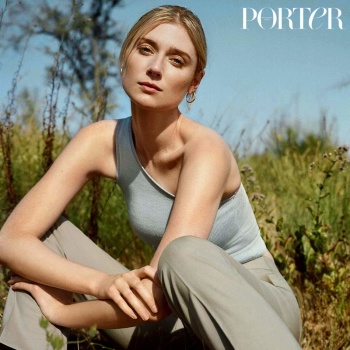
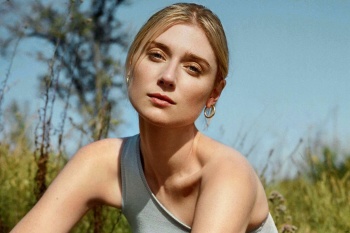
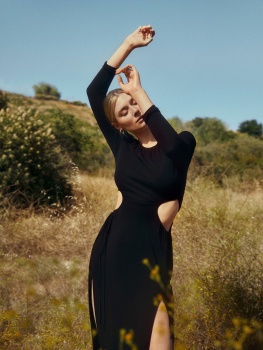
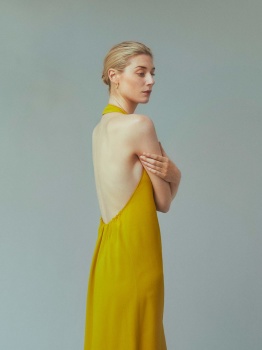
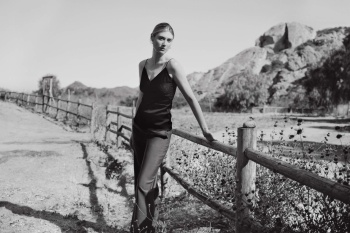
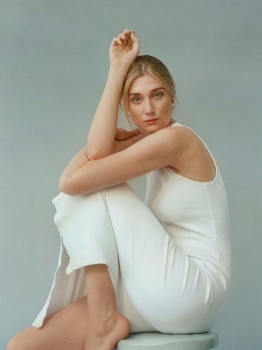
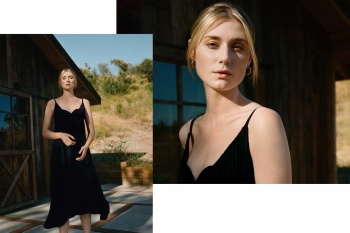
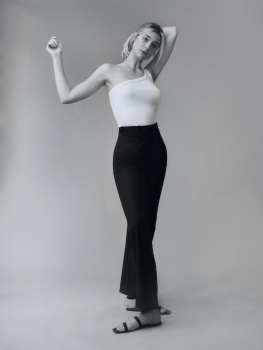
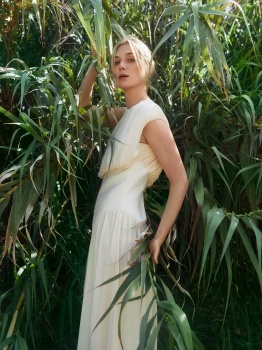
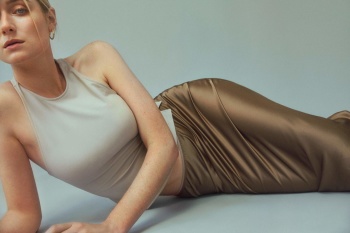
July 15, 2020
New Horizons
Model Elizabeth Debicki
Photographer Olivia Malone
Styling Annabelle Harron










net-a-porterHer career got off to a flying start in 2013, when Baz Luhrmann cast her in The Great Gatsby fresh out of drama school, and ELIZABETH DEBICKI hasn’t stopped working since. MEGAN LOGUE caught up with the Australian actor to talk about her new movie project, Tenet, authentic representation on-screen and being a global ambassador for women survivors of war.
“I am wearing pajamas from the waist down,” admits Elizabeth Debicki, as we meet via video call for her PORTER interview. The Australian actor has been quarantining in Los Angeles since March and, after the initial “shock to the system”, she has “surrendered” to life in lockdown. “I haven’t baked any bread or read Tolstoy… I watched Normal People and Googled ‘how to make a spicy margarita’,” she says.
Despite suffering from a self-diagnosed case of ‘Zoom fatigue’, Debicki is still dismayed that she turned down social invitations before daily life became unrecognizable. “I can’t be the only one thinking: why the f*** didn’t I go to that dinner two weeks ago?”
After seven years of working non-stop, she concedes that “being forced to pause has been confronting”. It’s actually London that Debicki calls home, a place she feels is far-removed from LA and Hollywood; where she can hang out with friends, go to the theater and just generally “re-engage with the fabric of normality”. (However, over the last few years, as her career has kicked into overdrive, she has been splitting her time fifty-fifty between the two cities.)
Back in March, when it became clear that the global pandemic meant cities across the world were shutting down and international travel was grinding to a halt, Debicki made the decision to stay in the United States, recognizing that the London she loved would be off-limits for the foreseeable future. She’s reluctant to use the word “gratitude”, fearful that it could ring hollow, but acknowledges that, so far, this year has been all about “taking stock” and, ultimately, her outlook is positive: “I wake up every day and think: my needs are being met and my family is safe – how incredibly lucky, am I?’”
Debicki should be on the campaign trail right now, promoting Tenet, the latest release from celebrated British auteur Christopher Nolan. The secrecy that surrounds Nolan’s projects – which have included box office sensations Interstellar, Inception and Dunkirk – is legendary, and Debicki is not at liberty to discuss specifics. Asked whether this shroud of mystery adds to the sense that you’re creating something special on set, her answer is suitably enigmatic: “The extremity of the commitment and the focus – it’s unlike anything I’ve ever seen before.” Debicki’s own experience of filming sounds both personally and professionally formative. “Working with someone like Chris, it’s a golden ticket,” she adds, mercifully. “You know it’s going to be super challenging and you know there are going to be lessons for you. Sometimes you uncover them gently and sometimes they come and bite you on the *** – for me, it was a combination of both.”
She may have a self-deprecating sense of humor, but Debicki’s back catalogue is a testament not only to her talent, but also her seemingly endless range. In the last five years alone, she’s played an escort in Steve McQueen’s Widows (201, an alien priestess in Guardians of the Galaxy: Vol. 2 (2017), an arms dealer’s mistress in The Night Manager (2016) and the femme fatale – albeit with a twist – in Guy Ritchie’s The Man from U.N.C.L.E. (2015). Although roles come at the mercy of directors, Debicki has been able to regain some agency in the process. “As an actor, your career is more defined by the things you say no to rather than the things you accept – you can carve your own path.”
Of course, her breakout role came from playing the gamine Jordan Baker in Baz Luhrmann’s high-octane adaptation of The Great Gatsby, in 2013. The story of how that fateful casting catapulted Debicki’s career is as much a tale of the American Dream as the movie itself. She was fresh out of drama school when she auditioned for the movie. Having already secured Leonardo DiCaprio, Cary Mulligan, Tobey Maguire and Joel Edgerton, Luhrmann wanted an unknown name to complete the line-up. After watching Debicki’s tape, he flew her to LA and the rest, as they say, is history.
“I look back and I still wonder, what were the odds? I put it down to a little bit of magic.” She’s no-less fatalistic about the projects that have passed her by over the years. “I can’t tell you how many times I have thought I was supposed to do something and been distraught if it didn’t work out. But I look back and go, I was just never supposed to, there was just too much ‘push’.”
The one role Debicki has never assumed, for better or worse, is the ingénue. “Even in drama school, I was playing people’s mothers,” she laughs, “but I think their complexity is a result of that maturity.” It’s a fitting attitude for the 29-year-old, who relishes the prospect of turning 30 next month. “It suits me to be moving out of my 20s,” she says. “I think we need to release ourselves from the school of thought that says one day we’ll reach a point and feel like we’ve ‘made it’. Or even just know what we’re doing.”
Her appearance is famously striking. Debicki’s porcelain skin and razer-sharp cheekbones are nothing short of ethereal – even on a computer screen – but it’s her height that has garnered the most attention from the media. “I don’t even know if I’m actually 6ft3, but that’s what the press says, so I’m just going with it.” Debicki might laugh while relaying how her best friend’s teenage son regularly sends her tweets relating to her height, but the actor has decided social media just isn’t for her.
“What I do for a living allows me to be super exposed through the medium of acting and, within that exchange, is the understanding that I have put myself up for criticism,” she explains. “But you can also decide how much you engage with other people’s interpretation of your work. I’m just too sensitive.” For the same reason, she refuses to read reviews.
Born in Paris to a Polish father and Australian mother – both ballet dancers – Debicki was five when the family relocated to Melbourne. It was actually her own dance training that made her realize she wanted to be an actor. “There was an inevitability to it,” she says. “I realized that I was performing and watching dance for the storytelling.” The gentility of ballet belies the discipline that it demands, and Debicki credits the drive and tenacity it instilled in her with preparing her for the rigors of, not just acting, but also life in general.
It’s something she’s found great solace in during lockdown. “One of the things that has become clear to me, having had a lot of time on my hands recently, is how important it is to constantly re-engage with your own body. Especially if, like me, you’re an overthinker.” She’s been dancing around her house and religiously tuning into acclaimed choreographer Ryan Heffington’s Sweatfest classes, which she highly recommends. The eldest of three, she is close with both her siblings and parents, whom she says were “rightfully concerned,” when she decided to forgo law school to study drama at University of Melbourne’s Victorian College of the Arts. “They wanted me to be able to pay my rent and feed myself. It’s a basic consideration, but it is not a given in the beginning.”
Women’s rights to “authentic representation” on-screen is something that Debicki is both passionate and vocal about. Can she feel a sense of momentum and positive change within the industry? “I think people are still working out how to do [it] honestly and organically. We have a lot of work to do before it’s not considered a deviation from the norm,” she says.
She’s heartened, however, by the critical reception that female-led dramas have garnered over the past few years, even if they’re still being heralded as the anomaly. “Have you been watching I May Destroy You?” she asks. “It’s simultaneously radical and yet, watching it as a woman, it’s also a relief. We are still in a place where it, and the glorious genius of Killing Eve and Fleabag, feels transgressive – and we need to keep creating space for these different viewpoints.”
s an ambassador for Women for Women International, a charity that works with women in war zones, Debicki is passionate about championing women’s rights. It was traveling to Kosovo with the organization and seeing first-hand the difference it was making to people’s lives that really struck her. “The focus on sustainable change, and how they achieve it, is so intelligent and efficient,” she says. “There is a very deep understanding of the fact that, in order to create change in society, you need to empower women.” Far from simply paying lip service to the cause, Debicki is determined to be part of pushing the movement forward, both in her industry and beyond.
Similar Threads
- Replies
- 108
- Views
- 27K
Users who are viewing this thread
Total: 1 (members: 0, guests: 1)
New Posts
-
-
Dolce & Gabbana ‘The One’ Fragrance 2025 : Madonna & Alberto Guerra by Mert Alas (14 Viewers)
- Latest: mikel
-
-
-















